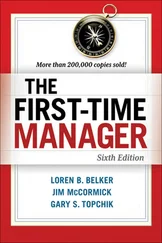Джон Болл - The First Team
Здесь есть возможность читать онлайн «Джон Болл - The First Team» весь текст электронной книги совершенно бесплатно (целиком полную версию без сокращений). В некоторых случаях можно слушать аудио, скачать через торрент в формате fb2 и присутствует краткое содержание. Год выпуска: 2013, Жанр: Триллер, на английском языке. Описание произведения, (предисловие) а так же отзывы посетителей доступны на портале библиотеки ЛибКат.
- Название:The First Team
- Автор:
- Жанр:
- Год:2013
- ISBN:нет данных
- Рейтинг книги:5 / 5. Голосов: 1
-
Избранное:Добавить в избранное
- Отзывы:
-
Ваша оценка:
- 100
- 1
- 2
- 3
- 4
- 5
The First Team: краткое содержание, описание и аннотация
Предлагаем к чтению аннотацию, описание, краткое содержание или предисловие (зависит от того, что написал сам автор книги «The First Team»). Если вы не нашли необходимую информацию о книге — напишите в комментариях, мы постараемся отыскать её.
Student protesters are being slaughtered in the Midwest.
The Jewish pogroms have begun.
You are now living in Soviet — occupied America!
One nuclear submarine and a handful of determined patriots against the combined might of Russia and Soviet-occupied America… The Most Explosive and Gripping “What If” Novel of Our Time!
First published January 1971
The First Team — читать онлайн бесплатно полную книгу (весь текст) целиком
Ниже представлен текст книги, разбитый по страницам. Система сохранения места последней прочитанной страницы, позволяет с удобством читать онлайн бесплатно книгу «The First Team», без необходимости каждый раз заново искать на чём Вы остановились. Поставьте закладку, и сможете в любой момент перейти на страницу, на которой закончили чтение.
Интервал:
Закладка:
Stanley Cumberland was the mechanical genius who could devise almost anything imaginable or lay his hands on someone who could. The coordination of all supply and special equipment came under him and he delivered with apparently unhurried infallibility. He could not be replaced.
Where field operations were concerned Walter Wagner was the best of them all, a fact that was fully recognized. Because his experience and technical capability were so valuable, the admiral had had no intention of letting him participate personally in Low Blow. He had held to that decision until Wagner figuratively had laid an ace on his desk. The admiral couldn’t refute it; it was the high card and it was valid. He had therefore yielded and Wagner had left the underground facility to carry out his mission. There was high risk involved, but once he had gone, Barney Haymarket was eternally grateful that the best possible man was on the scene and calling the signals. The planning had been superb and when the time came, if anyone alive could, Walter Wagner would pull it off.
The day that he left Major Pappas retired to his quarters and was by himself for some time.
On the morning of Operation Day the major got up at five, breakfasted, and then sat down to go over the fourteen alternate emergency plans he had prepared for perhaps the fiftieth time. He examined them once more minutely, for it was not too late to spot a flaw, a single item that would not fit ideally into position, and switch to another operational technique. It was an additional factor of safety, plus which it diverted his mind from the fact that the Marine Corps in the person of himself was not taking a direct part in the action. He was interrupted before he had finished and went at once to the operational room. He took his place at the table, surveyed the empty chair where Walter Wagner normally sat, and then banished every thought from his mind but the effort at hand.
The data available were sketchy, but the bits and pieces were firm. The special clothing was reported ready and waiting. The weather forecast was favorable. The critical personnel were all in good health, positioned, and ready. Most important of all, there was no evidence whatever that there had been any leak. That was not conclusive, as the enemy could be playing his own game, but every person who had an assignment had sworn that he would report at once the slightest lapse on his own part or the observed error of anyone else. The final security check had shown everything apparently airtight.
The clock on the wall silently measured the intervals of time, its large-sweep second hand continuously maintaining its slow unbroken pace, as though to remind everyone present that the passing moment would never return and that the time of deadline was coming unrelentingly closer.
Then the most important message of all came in. It was in the form of a code which supplied no details, only a single bare fact. The commander of the Hunters Point Naval Shipyard reported that all was ready.
The admiral drummed his fingertips on the tabletop, waited, and watched the message board.
Two more dispatches came in, code messages concerning minor details which were nonetheless encouraging — they were both positive.
Then at last the one that he was waiting for came, and in letters that spelled it out in the clear: mare island — ready.
They all looked at the admiral, the members of the First Team and the others who stood back against the wall of the room. The admiral did not see them; his mind was totally occupied. In three seconds he made his decision.
“Go,” he said.»
Lunch provided a respite for Hewlitt; as he ate alone he found himself once more thinking of Zalinsky and appraising his attitudes. He and all of his people were intellectual vultures who kept circling, waiting for someone to make a slip or a mistake — then they would exploit it to the limit. They had kept the free world forces on the defensive for years by that sort of tactics, by charging and attacking — by pointing the finger of accusation and never giving anyone the opportunity to criticize them. It had worked, it had worked well enough that the people of the United States did not know where their President was and a man who had no business there whatsoever occupied the White House — which was only a little worse than the thing that had happened to the same structure during the War of 1812.
When he returned to his office he called the operator and received the message that Senator Fitzhugh had been trying to reach him. He returned the call and had the senator’s secretary on the line after a few seconds.
“Mr. Hewlitt,” she said, “Senator Fitzhugh would like to talk with you. To be perfectly truthful I don’t know what it’s about, but he suggested that if you are free this evening, perhaps you and he could have dinner together.”
Hewlitt realized at once that he could not and should not refuse this invitation.
“I would be very glad to dine with the senator,” he responded. “When and where?”
“Senator Fitzhugh said only that he would like as quiet a place as possible, one where he would not be too widely recognized. Perhaps you might have something in mind.”
Hewlitt did, but he knew better than to specify it over the phone. “Why doesn’t the senator come to my apartment if he would like to do that? I would be happy to offer him some pre-dinner refreshment and then we can go on from there.”
“At what time, Mr. Hewlitt?”
“Say seven.”
“Fine, I’ll notify the senator. Are you still at the same place in Georgetown?”
“Yes, I am.”
“Seven, then, unless I call you to the contrary.”
Once more Hewlitt found himself with thinking to do. He did not know what the senator wanted with him, but he could guess in several different directions. Mentally he stacked them up in his mind and then tried to work out a plan to deal with each of them.
He picked up the telephone and dialed the number of the safe house. Davy answered promptly, “Jones’ TV service.”
“This is Mr. Hewlitt,” he said.
“Yes, sir, what can I do for you?”
“My TV went out on me last night — sound but no picture. It’s intermittent; sometimes it’s fine, then it goes out again.”
“I understand, sir. I’ll go out there right now if there’s someone to let me in.”
“I don’t believe that there is now. How about five-thirty?”
“That’s fine, sir, I’ll be there.”
As he hung up Hewlitt thought that that had been a nice bit about the fault being intermittent: if anyone went in to check and the set performed normally, it would still not disprove that the call for service had been genuine.
When Hewlitt arrived home he found Davy waiting for him in the hallway. He admitted him and then gave him substantially the same account that he had over the phone of the supposed trouble with his set. Davy knelt down before it, turned it around and took off the back. Then he opened his kit of tools and extracted a compact piece of equipment which Hewlitt had never seen before. It was a professional product and something about it suggested at once that it was classified.
It was self-contained, at least it carried its own power supply and required no external source. “The set looks all right at the moment, Mr. Hewlitt,” Davy said. “If you don’t mind, I’ll wait a little while and see if the picture will go out for us.”
“I’d appreciate it if you would, and it probably will,” Hewlitt answered. The two men understood each other perfectly as they played out the game for the benefit of any possible eavesdropper.
“May I use the bathroom?” Davy asked.
“Yes, of course.”
With the instrument in his hand Davy walked toward the rear of the apartment. He went into the bathroom, closed the door, and after a suitable interval flushed the toilet. As he came back he walked carefully around the walls, holding a thin wire antenna in his left hand.
Читать дальшеИнтервал:
Закладка:
Похожие книги на «The First Team»
Представляем Вашему вниманию похожие книги на «The First Team» списком для выбора. Мы отобрали схожую по названию и смыслу литературу в надежде предоставить читателям больше вариантов отыскать новые, интересные, ещё непрочитанные произведения.
Обсуждение, отзывы о книге «The First Team» и просто собственные мнения читателей. Оставьте ваши комментарии, напишите, что Вы думаете о произведении, его смысле или главных героях. Укажите что конкретно понравилось, а что нет, и почему Вы так считаете.












